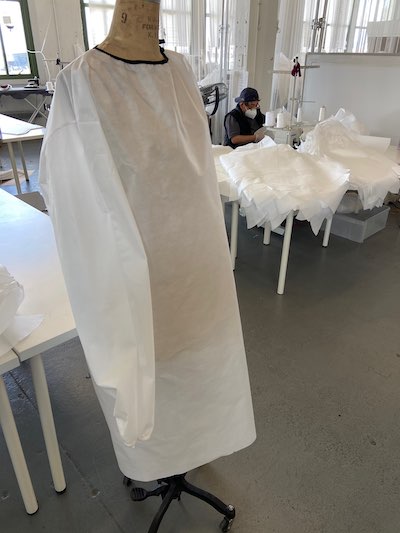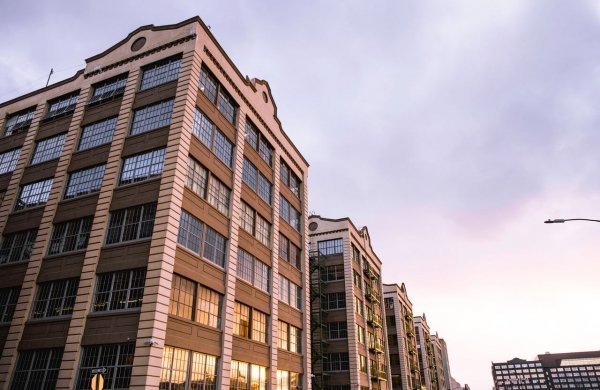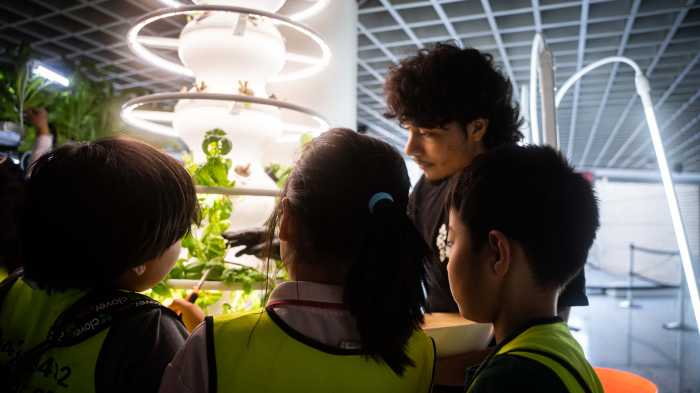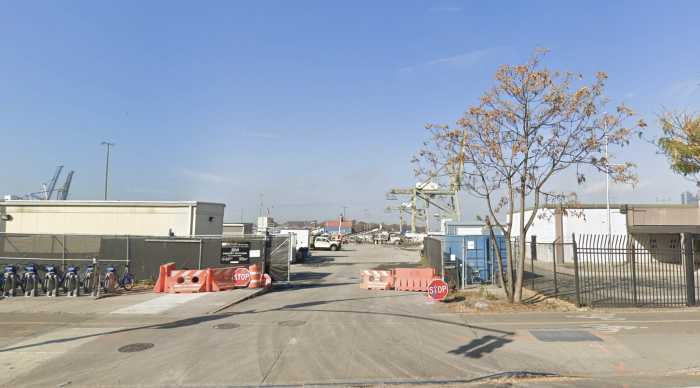With all the chaos the coronavirus crisis is causing to the city, it’s easy to forget that necessity is the mother of invention.
Fashion companies in Brooklyn combined forces, backed by the city’s Economic Development Corporation (EDC), to manufacture over 65,000 patient isolation gowns per week for patients in need.
Libby Mattern, founder of Course of Trade, a nonprofit in Sunset Park’s Industry City, spearheaded the initiative that provides free industrial sewing training and jobs to New Yorkers in the garment industry.
“We help people in the local community, and everyone who comes through the program also gets to see what’s going on inside a fashion business. It’s a really cool behind-the-scenes so people can figure out where they want to be in the industry,” said Mattern. “As this all started unfolding with COVID, we realized swimwear and clothing were probably going to take a backseat to PPE instead.”

She’s also been production director for Malia Mills fashion company for about seven years. Mattern reformed their production space to be socially distant and organized several other brands in Sunset Park and the surrounding neighborhoods to follow suit.
Mattern and the EDC surveyed and reached out to manufacturers that could build the supply chain and start producing gowns from raw materials for specific parts of Brooklyn. The goal was to create “mini-hubs” of locally-sourced production that could be accessed easily.
“Having someone located there was really important so that we weren’t furthering the spread,” said Sonia Park, the Assistant Vice President of Industry and Innovation team that leads in fashion programming at EDC. Park said they have people for instance at Brooklyn Navy Yard to service north Brooklyn and Brooklyn Army Terminal to service south Brooklyn.
Brooklyn is the second largest hotspot for garment manufacturing in the city, said Park. Some of the fashion factories that pivoted to producing clothing and coverings to alleviate the city’s current shortages are That’s My Girl, Double Take Fashions, MUDO Fashion, BMGM, Stitched by Grace, Malia Mills, and the Fashion Poet.
The factories are already up and running with their own sewing teams, but recruiting experienced sewers has presented a challenge.
“We are briefly taking a hiatus from training,” said Mattern about the job openings, “People are scared to come to work, which I understand. It’s hard to convince people now is the time to leave and come in and sew something for our neighbors in need, but it’s incredibly necessary.”
Park said the crisis is creating an interesting interdependence within the city. “A lot of the garment manufacturers know healthcare providers or they have family members who are healthcare providers, and I think that everyone is so dedicated to working on this because they know how integral they are,” said Park.
She said the unique thing about the EDC is that it’s designed to help shape economic growth and ensure stability, especially in emerging industries like fashion, finance, media, AI, blockchain or cybersecurity. “Because of that expertise we really were positioned to take on the sourcing local industry to help support the city and healthcare providers,” said Park.
Traditionally, Park said, PPE items have been solely sourced from one area. Hopefully, now that the infrastructure is in place there will be more opportunities for manufacturing in Brooklyn outside of fashion in the future.
The isolation gowns are level one with very specific specifications and fabric secured by the Mayor’s office. The EDC works directly with the Department of Health and Mental Hygiene (DOHMH) to distribute the gowns to public hospitals across the five boroughs.






